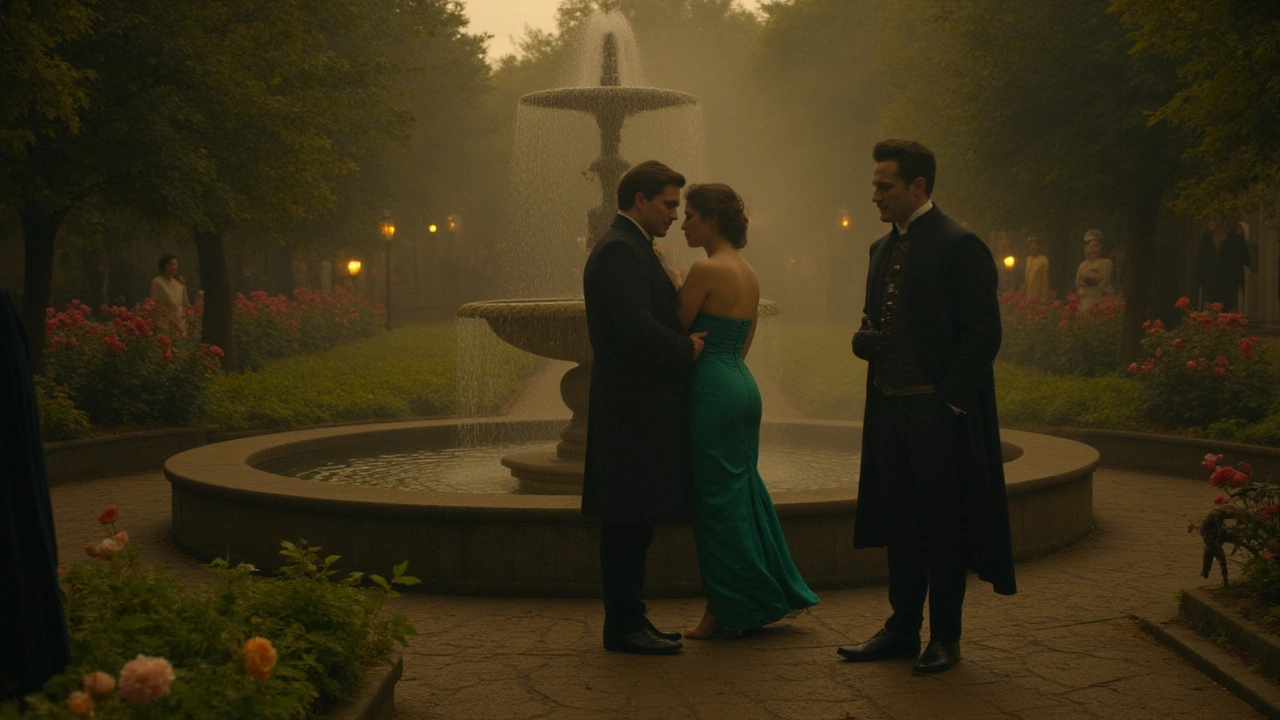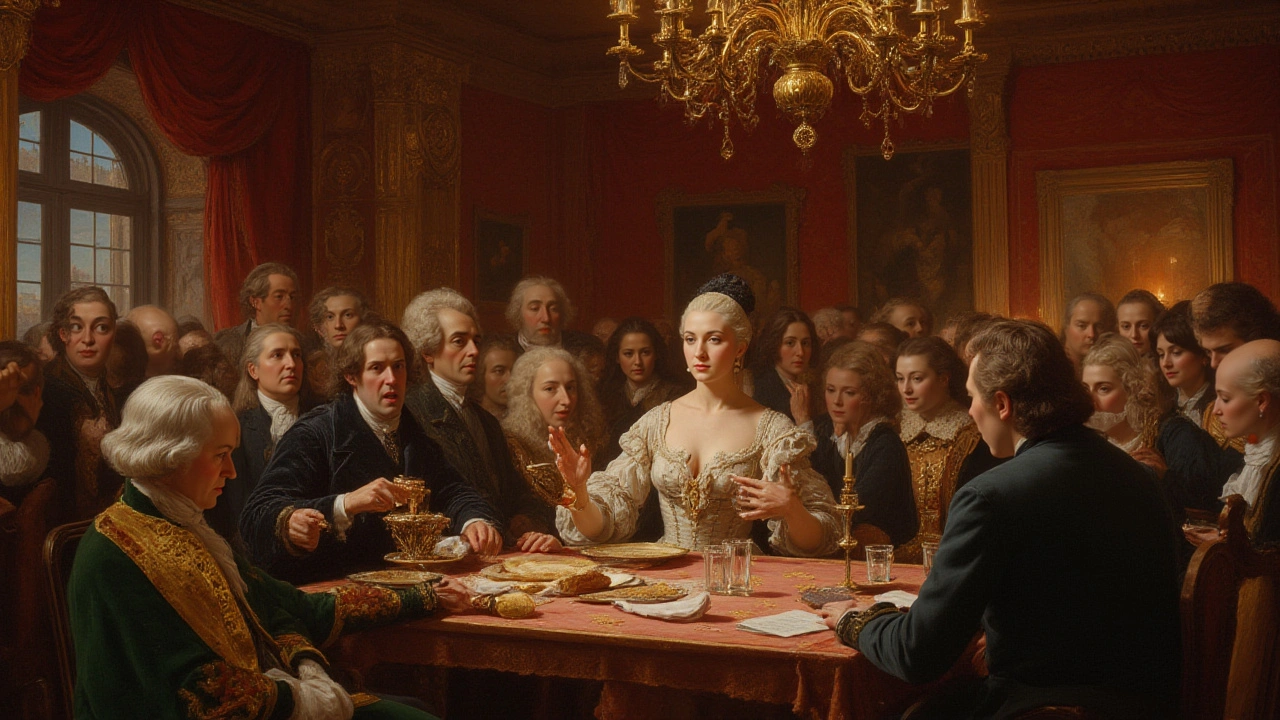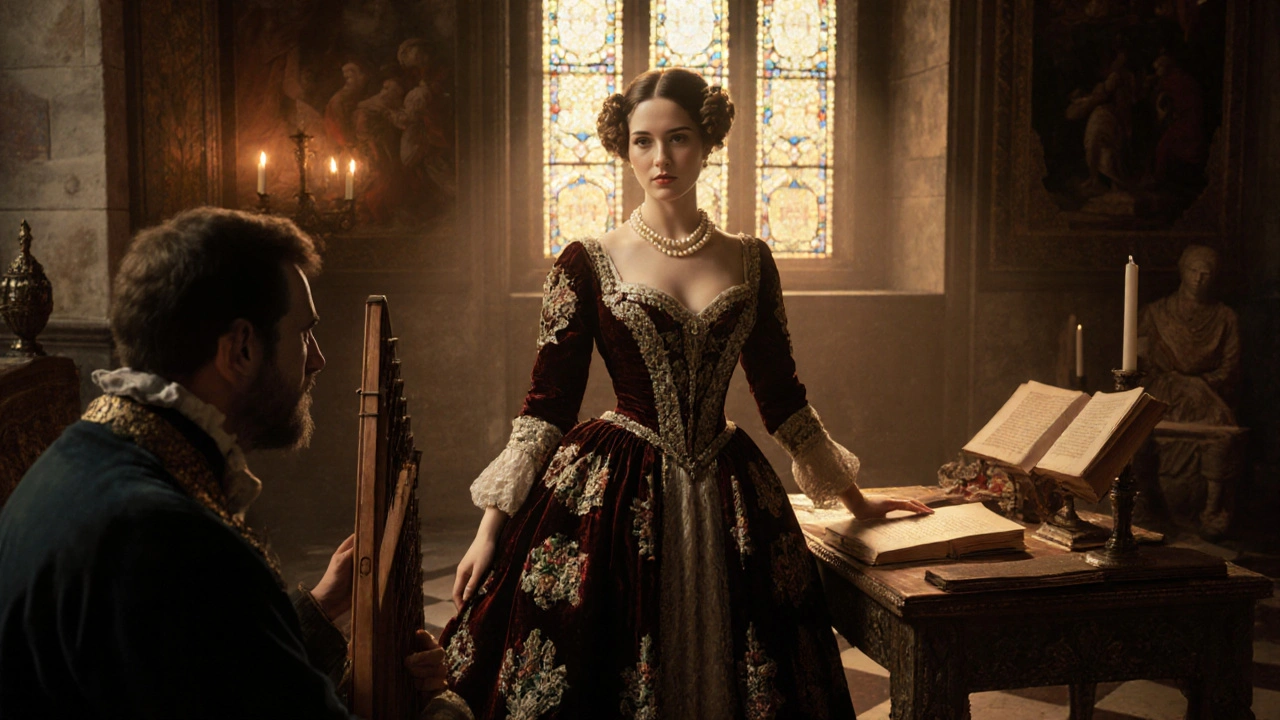They called them Queens without crowns, shadow diplomats, and the true whisperers of power. Long before politicians staged press conferences or lobbyists haunted government halls, courtesans were shaping the fate of cities, empires, and kings—often in ways that history books hesitate to openly admit. If you think the only thing that happened behind closed doors was romance, you’re missing just how tangled sensual pleasure and political intrigue have been for centuries. What did it really take to hold the ear of a statesman? It wasn’t just beauty. It was strategy, secrecy, and a knack for reading the minds of men who ruled. Peel back the layers and the real story is as juicy as any thriller: the bedroom as battleground, silk sheets hiding hard-won secrets, and alliances sealed with a wink, not a handshake.
Courtesans: Who They Were And Why It Mattered
What made a courtesan? She (or sometimes, he) wasn’t just a high-class companion. Courtesans worked at the crossroads of entertainment, social status, and politics. Unlike those working strictly as escorts or mistresses, courtesans were often highly educated, speaking multiple languages, playing musical instruments, reciting poetry, even mastering philosophy or politics. History isn't short on examples—take Ninon de l’Enclos in 17th-century Paris, who hosted salons that attracted Voltaire and members of the royal family. Aspasia, mistress to Athenian statesman Pericles, was as likely to be debating Plato as enchanting with her charm. What they all shared was this: a reputation for intelligence and wit that earned them a seat at the elite’s table. Kings, dukes, and generals could not afford to ignore them because their influence stretched, quietly, into the halls of power.
In pre-revolutionary France, for instance, Madame de Pompadour practically ran the court of Louis XV, not because she was just another pretty face, but because she played court politics better than most men around her. Her advice shifted diplomatic alliances—she handpicked favorites, shaped tastes, and even managed finances. Imagine a social media influencer crossed with a political consultant, but with access to every secret worth knowing. Courtesans often served as “spies with benefits,” trusted with confessions and pillow talk from ministers and monarchs alike. It’s no exaggeration to say that without these savvy women, some nations might have ended up with entirely different maps.
You might wonder, did they wield real power, or just whisper into the void? The answer lies in the shadows. When Catherine de Medici ruled as Queen of France, she employed a team of “flying squadron” courtesans to charm and eavesdrop on political rivals. Their information-gathering tipped the scales in crucial negotiations and alliances. If you watched any show about royal courts and secret plots, odds are courtesans lurk in the background, pulling strings.
The Downtime Strategists: Benefits And Influence In The Political Arena
People tend to focus on the sensual side, but behind those lavish parties and clandestine encounters, courtesans mastered the art of diplomacy. Take the salons of Renaissance Venice, where Veronese beauties entertained diplomats and monarchs alike. While glasses were raised and music played, delicate questions of war and trade were discussed—trusting that information shared in these more relaxed, amorous settings might prove much more reliable than anything heard in the stuffy official chambers. It’s not far-fetched: secrets are looser after wine, laughter, and flattery.
Their influence didn’t stop at state gossip. Britain’s 18th-century courtesans, women such as Sophia Baddeley, were rumored to have swayed elections by persuading wealthy patrons to change their votes—with a well-timed favor or a smartly placed rumor. In Russia, Catherine the Great herself began her ascent surrounded by political allies found among the extramarital companions of nobles. The modern term “soft power” might have been coined for these women. They could cut through diplomatic posturing and reach the truth because everyone wanted to stay on their good side. It’s no accident that details of coming wars, financial deals, or family affairs often emerged in their company, not during the endless rounds of official banquets.
Where did the benefit come for the courtesan herself? She could be rewarded with titles, land, or even political appointments for her family. Madame du Barry, last mistress of Louis XV, started her journey as an employee in a Parisian hat shop. With intelligence and charm, she rose to become a countess, holding the ear of the king until his final days. But it was a game of constant risk—those who failed to play wisely (or who trusted the wrong confidant) could see themselves exiled, imprisoned, even executed. The stakes were very real, but so were the rewards.
If you want to break it down visually, here’s a quick look at some famous courtesans and their political achievements:
| Courtesan | Era/Region | Political Impact | Famous Partners/Patrons |
|---|---|---|---|
| Madame de Pompadour | France, 18th century | Directed French alliances, influenced art and economics | Louis XV |
| Aspasia | Ancient Athens | Advised Pericles, credited with shaping Athenian democracy | Pericles |
| Veronica Franco | Venice, 16th century | Acted as an unofficial ambassador, protected city secrets | Multiple Venetian nobles |
| Koto | Japan, Edo period | Shared secrets between feuding daimyo, mediated peace | Shogun’s circle |

What Drives The Influence: Secrets, Access, And Strategy
Ever think about how power actually moves through a society? Political authority isn’t just about laws or titles: it’s built on access, trust, and the kinds of secrets only shared late at night with someone you believe won’t betray you. Courtesans could be anyone’s confidante—loyal to no one but themselves, in most cases, which made them both dangerous and indispensable. The secret of their influence was access. A lover at a king’s bedside would hear unfiltered glimpses into a leader’s thoughts, doubts, or plans. Unlike a minister, who might be filtered by political rivalry, or a wife, who might be bound by expectations, the courtesan could ask the dangerous question: What do you really want?
The best of them developed “soft networks” that were parallel to official power structures. While the outward trappings of court politics—the protocols, the formalities—worked their slow ways, courtesans could arrange a visit, send a note, or deliver a clever comment that made all the difference in negotiations. Many times, a strong suggestion from a trusted courtesan tipped the decision about who would become a general, who might inherit an estate, or whether an alliance would be struck or broken. Odessa could tell you stories passed among the women in her own family, tracing lines back to Russia, where dinner parties and musical soirees provided cover for information-swapping that set the tone for an entire season’s political moves.
Courtesans also held an edge by being outsiders—not fully part of the aristocracy, but just close enough to observe its failings. They also had incentive to remember and report details, given the nature of their survival: their fortunes often rose and fell on a single useful piece of gossip. And because they often owed their rise to talent rather than birth, they had to stay quick on their feet, adapting to sudden shifts in loyalties or public taste. A witty courtesan might turn disaster into opportunity with a well-timed joke or a clever poem recited at the perfect moment.
Gambling, art collecting, patronage—all these flourished under the influence of courtesans who encouraged or discouraged trends, making them taste-makers alongside being power-brokers. They didn’t just work the shadows; they often set the tone for the entire era, from what the elite wore to what kind of poetry would be read in public squares or at court. You can almost map out a nation’s shifting values by studying which courtesans gained prominence at which times. Whenever a regime began to wobble or a revolution seemed near, you can bet those in charge started to worry about who was spending their evenings with whom.
The Myth Versus The Modern Picture: Lasting Lessons And Echoes Today
The stereotype of the courtesan as idle pleasure-giver just doesn’t stand up. In modern times, we might be tempted to compare them with today’s high-society influencers or PR consultants, but this shortcut only scratches the surface. What’s really changed? Some might say the corridors of power look more official, but the game of soft influence is still everywhere. Politicians now have personal advisors, lobbyists, or spin doctors, but confidential relationships—from private dinners to ‘off the record’ chats—still shape what happens in the open.
In present times, documented cases show that advisors with deep social connections—think campaign fundraisers who double as confidantes, or cultural ambassadors with close friendships to world leaders—can play roles eerily like those once held by famous courtesans. Even if we don’t call them that anymore, the dynamic endures: access, trust, and a finger firmly on the societal pulse. Some European cities run guided tours of the former homes or salons of notorious courtesans, showing just how deeply these figures shaped everything from local architecture to international trade.
What lessons can you take from their stories? For one, never overlook the power of informal networks. Formal authority means little if you can’t inspire trust or gain honest confession. In politics, as in life, sometimes the one who listens is more dangerous than the one who commands. If you’re interested in reading more, check biographies like “Madame de Pompadour: Mistress of France” by Christine Pevitt, or dip into “Courtesans and Fishcakes: The Consuming Passions of Classical Athens” by James Davidson for some wild glimpses into how these figures lived and loved.
So, next time you think of political intrigue, don’t picture just scheming old men in smoky rooms. Somewhere nearby, there’s probably a courtesan—past or present—quietly steering the conversation, trading secrets for power, and reminding us that real influence doesn’t always wear a crown or a title. It wears wit, patience, and a smile that means trouble for anyone not smart enough to pay attention.


